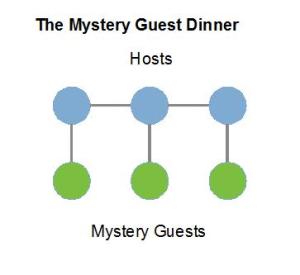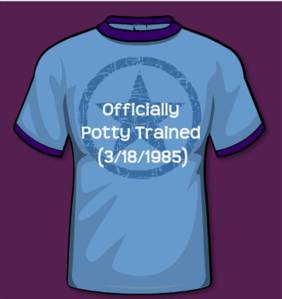Just spent a day doing college interviews, which is consistently enjoyable in aggregate if not always for each particular interviewee.
I am the interviewer that the good candidates love and the bad candidates hate. I revel in asking the tough questions far from a candidate’s comfort zones and seeing them squirm — forcing them to engage their own minds in something they’ve never thought about. That’s where you learn who’s a thinker and who’s just well rehearsed. Those who play ball and lean closer when answering are the ones you want to admit and will become dining hall and seminar all-stars. Those who are uncomfortable and tense up get the red stamp of disapproval. One question from today that helped draw that line was:
What is the single worst thing about our world?
And then when they think they are in the clear:
Why?
I was sitting on my high throne of interviewer invincibility when a particularly sassy girl fired back at me: “How about you? Can you answer that?”
…
Oh shit
..
“I ask the questions here, Lady,” I respond half-jokingly.
But she pressed on and I was forced to run my own gauntlet. My answer was a jumbled mess. A surefire ding if I was in her shoes
Consider this post my mulligan.
My answer to the first question is simple: Global poverty. The “why” is what I want to comment on here.
The common answer is because poverty causes suffering – and that’s certainly a good one and plenty sufficient to take action. My real reason is a tad more selfish.
(With few exceptions) the extreme poor don’t contribute. I’m not talking about the poor in the US. I’m talking extreme poverty, primarily subsistence farming in rural areas.
They don’t invent. They don’t govern. They don’t write books. They don’t produce art. They don’t innovate in a way that matters for the rest of us. They don’t make the wider world a better place. They may have talent – but it’s wasted and ground down in the fight for subsistence. This is the real tragedy. Wasted human potential down the drain, and with it, a better world that could have been.
This is the topic of one of my favorite poems – Thomas Gray’s “Elegy Written on a Country Churchyard.” Standing over the buried dead in a poor rural graveyard, Gray laments and marvels at the wasted potential. The following stanzas in particular drive straight to the point:
Let not Ambition mock their useful toil,
Their homely joys, and destiny obscure;
Nor Grandeur hear with a disdainful smile
The short and simple annals of the Poor.
….
Perhaps in this neglected spot is laid
Some heart once pregnant with celestial fire;
Hands, that the rod of empire might have sway’d,
Or waked to ecstasy the living lyre:
But Knowledge to their eyes her ample page,
Rich with the spoils of time, did ne’er unroll;
Chill Penury repress’d their noble rage,
And froze the genial current of the soul.
Full many a gem of purest ray serene
The dark unfathom’d caves of ocean bear:
Full many a flower is born to blush unseen,
And waste its sweetness on the desert air.
Some village-Hampden, that with dauntless breast
The little tyrant of his fields withstood,
Some mute inglorious Milton here may rest,
Some Cromwell, guiltless of his country’s blood.
Less than half the earth’s population is included our globalized world. The rest are isolated, taking nothing from us and also giving nothing back. Bringing them into the fold so that their talents can be put to use while simultaneously improving their lot ….
…that’s The Why.




